David Rocco – Heart of Culture
At a small stall along the streets of Old Delhi, there’s a man who makes a rather delicious double-fried chicken. The batter, explains David Rocco, is made of chickpea flour and yogurt, and spiced with a masala, some turmeric and garlic-ginger powder. But before the poultry is coated and fried, twice, it must be chopped. And here’s where it gets interesting: “Usually you have a person holding one end and another person holding the other and you’d chop,” continues the celebrity chef. “This guy is holding the chicken down with his feet.”
His what?
“His bare feet.”
Rocco chuckles, acknowledging the bizarreness and blatant lack of sanitation. “I know! See, I just went with it. I saw it. I’m like, ‘I’m here. This is wild. This would never happen in Woodbridge.’ And it was the best chicken I’ve ever had.” Like the butchered bird at the heart of that tale, that practice would certainly never fly here in Canada — or anywhere with a health code, for that matter. But being a country of over 1.2 billion people, India is a land where an 8 a.m. appointment may turn into an 8 p.m. appointment on a whim and filming permits may be rejected for no real reason at all. Rocco found when exploring the warm, crowded and vibrant streets of India, you just have to go with the flow. “After all, in India, make plans and Indians will laugh at you. And God will laugh at you,” he says with a smile.
For years, Rocco has spiced up the lives of television audiences with romantic tastes of the cucina povera, peasant cuisine, from across Italy on his hit series David Rocco’s Dolce Vita. But in a culinary twist, Rocco has broadened his gaze and shifted his attention to the rapidly developing country of India for his latest series David Rocco’s Dolce India. The change of scenery may seem like an odd choice for those familiar with the Italian-Canadian TV personality, but that’s precisely the reaction Rocco’s looking for. “That’s exactly what we want, because this is a series that I think really tests me, it pushes me as a chef and as a producer,” he says, sitting amongst the modern, milky furnishing and softwood accents of Avenue Cibi e Vini in the village of Kleinburg. “We went there and we really tried to get into the heart of the culture. It’s an exciting place.”
As Rocco, dressed in a sharp glen plaid Ermenegildo Zegna suit, sits surrounded by the rumblings of arriving patrons and the clatter of Avenue’s kitchen coming alive, the home of Bollywood, the Taj Mahal and Gandhi might as well be on Mars. But as he dives deeper into his story, Rocco whisks us thousands of miles away. “I tried to go in with an open mind, an open heart and certainly with no preconceived ideas,” he says of his approach to the nine-week production shoot. No easy task, to be sure. An unfamiliar country, different language and ideologies, an alien way of life — it’s a challenge to check personal perspectives at the door. But Rocco was determined to capture the nation for what it is and how its people live. This new series, he notes, shows a progressive and modern India — “Everything you can find in New York is available in Mumbai,” he says of India’s most populous and wealthiest city — but one that also holds respect for tradition. “Both ends of the spectrum are explored on our show,” he adds. “I think it shows an India that is really going to be one of the great countries in the future.”
From the streets of Mumbai to the hilltops of Rajasthan, Rocco explores all facets of Indian culture with the same theme of travelling, connecting with people and, of course, sampling food that he featured in Italy on his past series. For those who wonder why the Italian chef would venture to India, Rocco, who was apprehensive about the idea initially as well, explains that the two countries share similarities. “Indians are crazy, dysfunctional, nuts. Just like Italians,” he says with a chuckle. But adds in earnest, “There’s a lot of parallels to Italian food in that, culturally speaking, there’s the history of the food, family recipes, the regional influences. Within 100 kilometres the same dish will be made 100 different ways by a 100 different families. So they have that passion for food.” Indians do, however, love it spicy, and there were waves of new flavours that educated his palate. Chillies, masalas, gravies, curries, slow-cooked meats such as mutton and goat — the flavour profiles were novel and inspiring. He notes pani puri (chickpea puffballs) and vada pav (a potato croquet) as two of his favourite street foods, and points out how the use of spice revealed new paths to explore his own cooking. “On a personal level, it was a great journey learning a new culture. But also as a chef, just being involved in seeing first-hand how dishes are made was really exciting,” he says.
But it wasn’t just about sampling a range of fare. It was about getting to the heart of Indian life. From celebrating Holi, the Hindu religious festival of colours, with a local family to playing elephant polo with a maharaja, Rocco experienced an array of adventures throughout the series. He tells a specific tale about how he and the crew ventured to a gurdwara, a Sikh temple, where they would feed 20,000 people every day. “You could not script it,” he says of the monumental task. “It was just being open to opportunities and dialogue with people and being available for the unexpected.” People of all walks of life, regardless of faith or social standing, contributed to the meal. From millionaires to street sweepers, Muslims to Christians, a mass community gathered to help feed those in need. There was no executive chef, Rocco notes, but everyone just seemed to know what to do. Lending a hand, Rocco found himself at a large vat of rice, stirring the meal with what was basically a shovel. “I’m moving it along and I remember saying on camera, ‘This is like shovelling your driveway when it’s full of snow,’” he says with a laugh.
Things weren’t all heartwarming, however — they also got a little hairy with local authorities. At Chowpatty Beach in Mumbai, Rocco and his team showed up to scout the area for the following day’s shoot. But the police wouldn’t allow it. Rocco showed him his permits and outlined the situation, but the officer still refused. “Of course, the Italian in me, I think I’m going to outsmart him,” Rocco explains. The next day they showed up and began filming. They were quickly arrested. “He rounds us all up and takes us away, but we kind of got out of it with the old Indian bribe,” he says with another laugh. “But that was part of the intensity, that was part of our journey, and it’s part of Indian culture. And maybe Italian culture too.”
This new series also marks a change in Rocco’s life. On Dolce Vita, Rocco would often travel with his wife Nina and his twin daughters Emma and Giorgia. But with their third, Dante, as a recent addition to the brood, his family couldn’t make the journey. “It was difficult to be in India for nine weeks without seeing my family,” he says, adding it was exceptionally hard having to miss his daughters’ fifth birthdays. But through the magic of technology they were still able to celebrate. “We had two birthday cakes. We filmed it with elephants and wished them a happy birthday on Skype. It was hard, but it’s all part of juggling and trying your best in all facets of your life,” Rocco says, adding, “I don’t think you should stop just because you have kids.”
While Rocco is excited to share this new chapter with viewers, he’s also keeping an eye on the horizon. He explains that a fourth cookbook, which will feature Italian-Indian fusion, is slated for release next year, and that a restaurant could also be on its way in the next 18 months, in both Toronto and Mumbai.
This new series is certainly outside the box for the Italian-Canadian chef, but Rocco knows that food is the great equalizer. We all must eat, “that’s a universal truth,” and food has that power to bring people together, to dissolve ignorance and discrimination. “I love people and I love travelling,” he says. “So, part of our mission — mine and as a production company — is to really explore these new cultures, and just bring it to people in a unique and inspiring way.”
Visit www.davidrocco.com for the latest updates on David Rocco’s Dolce India
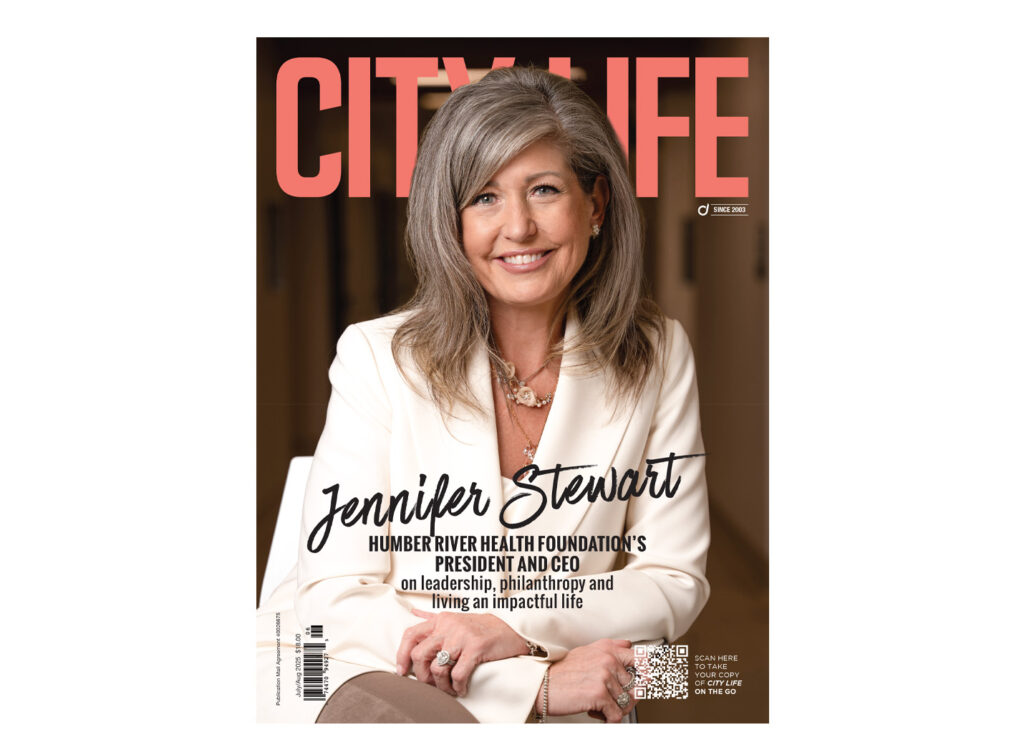








































































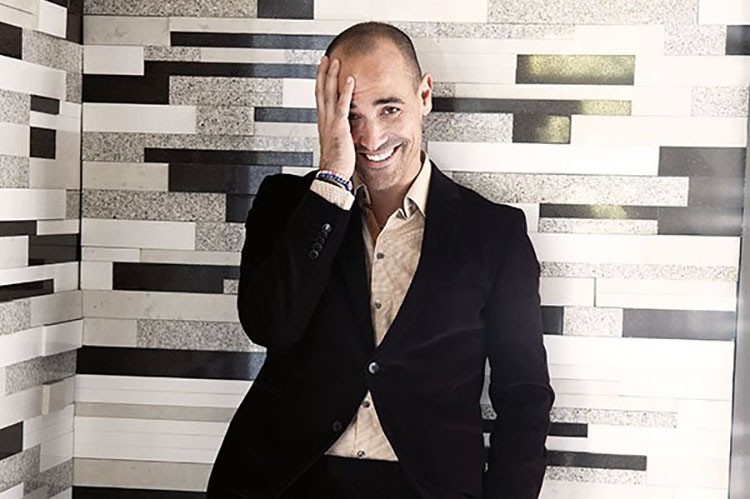
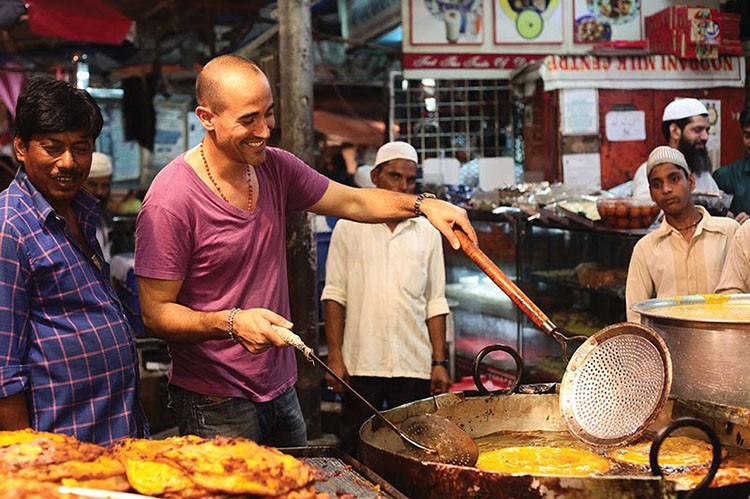
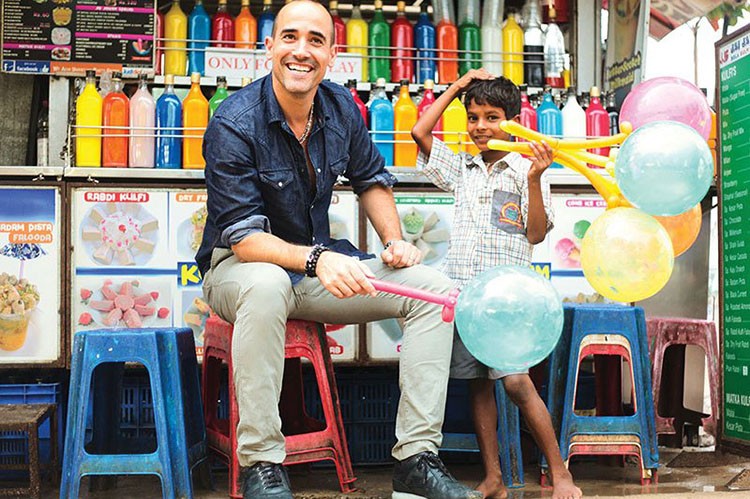
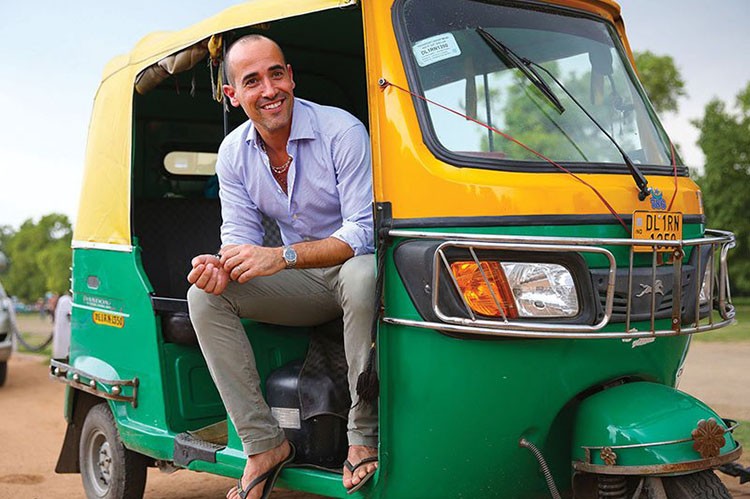
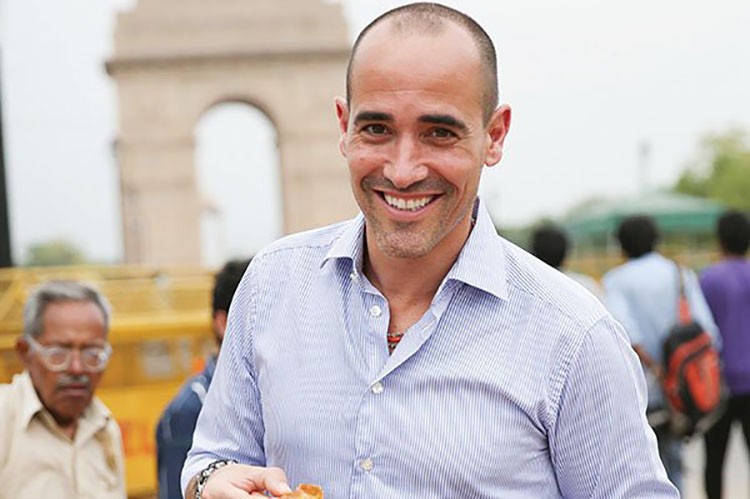
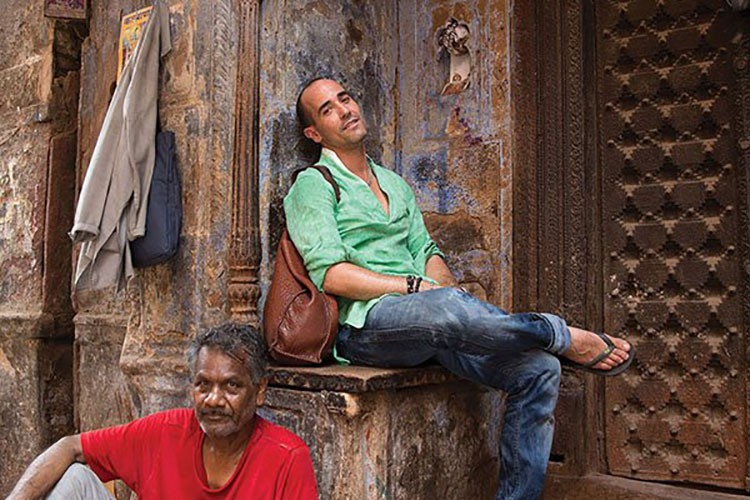
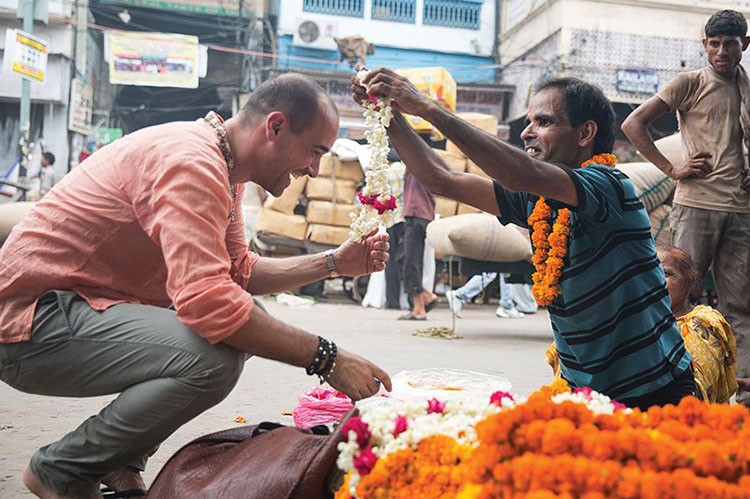
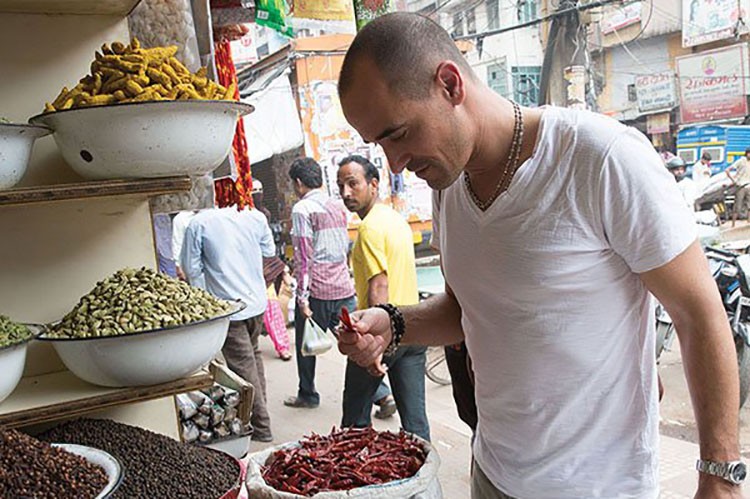
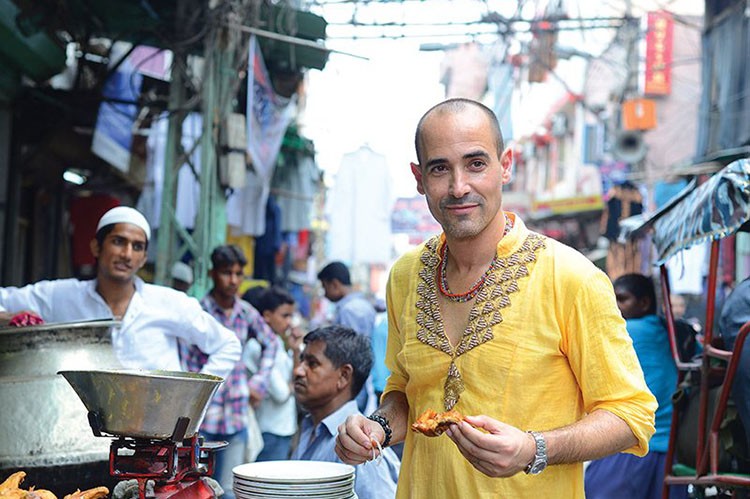
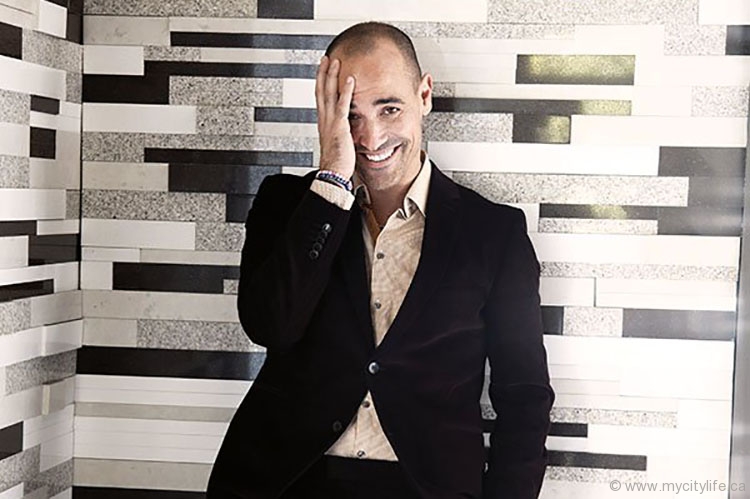


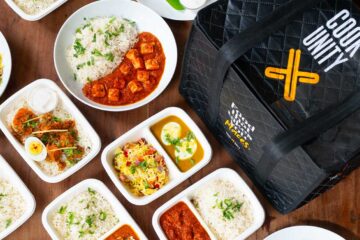
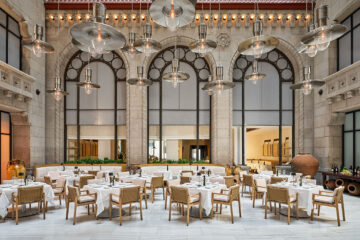
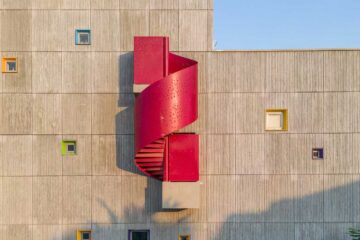

No Comment